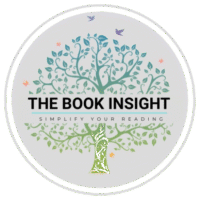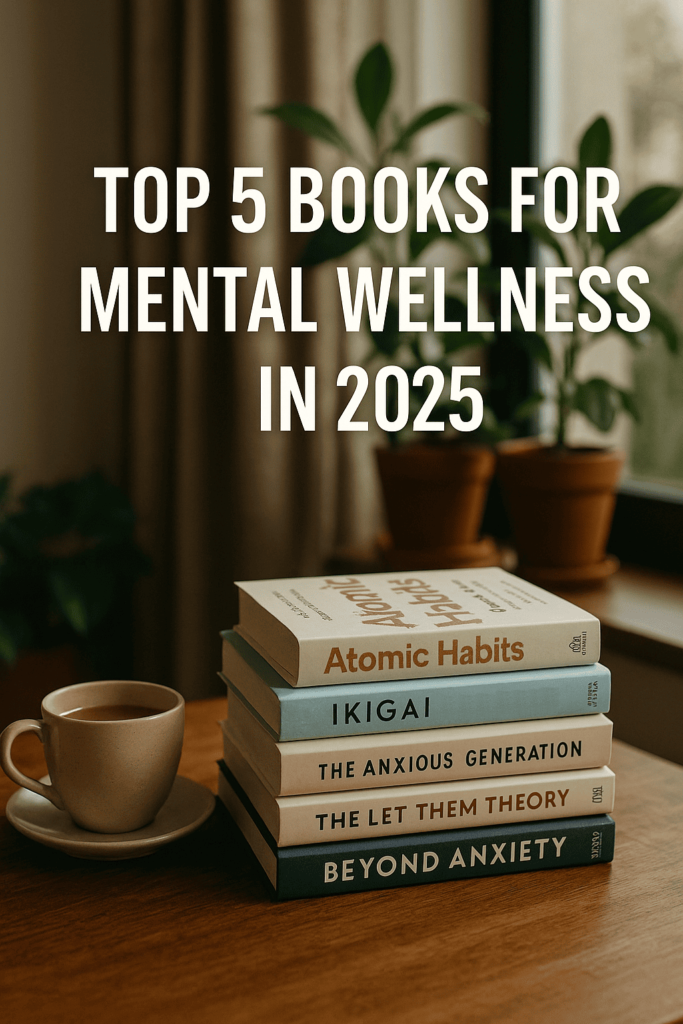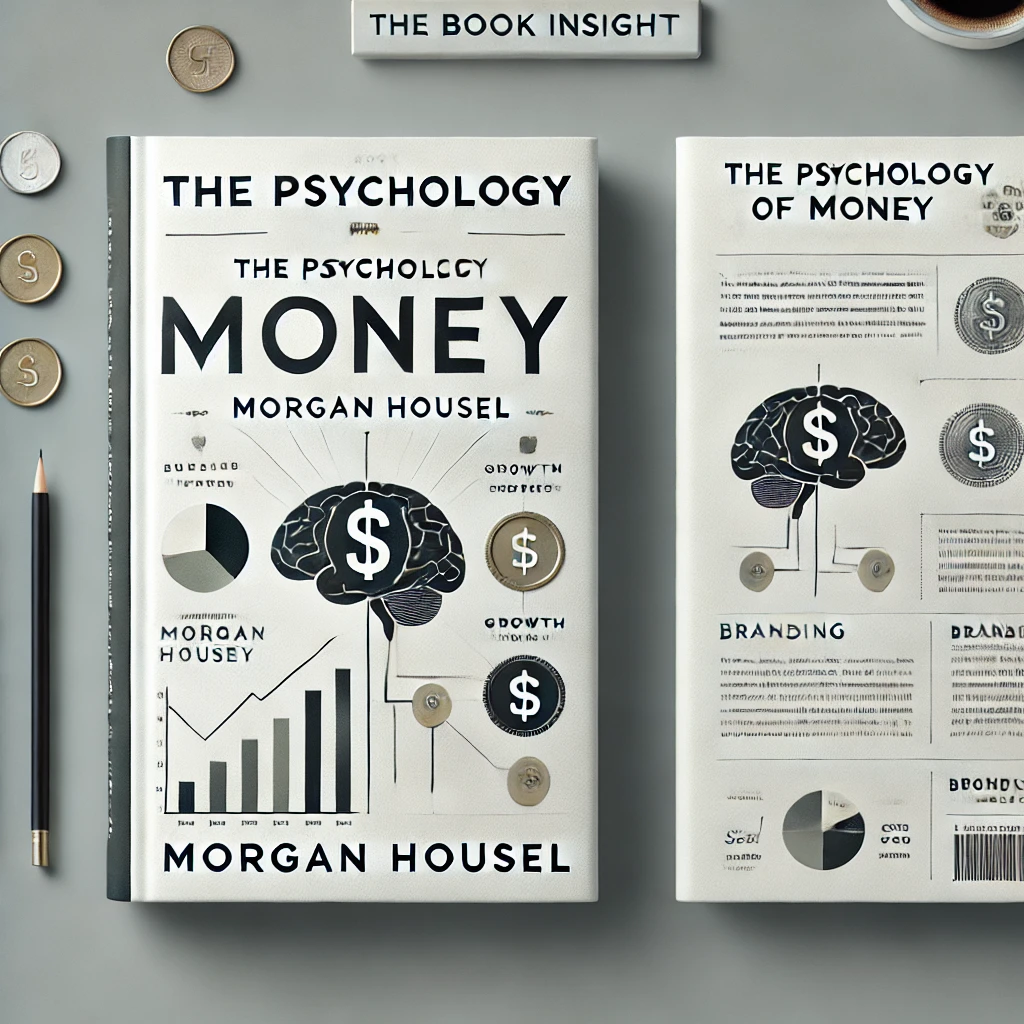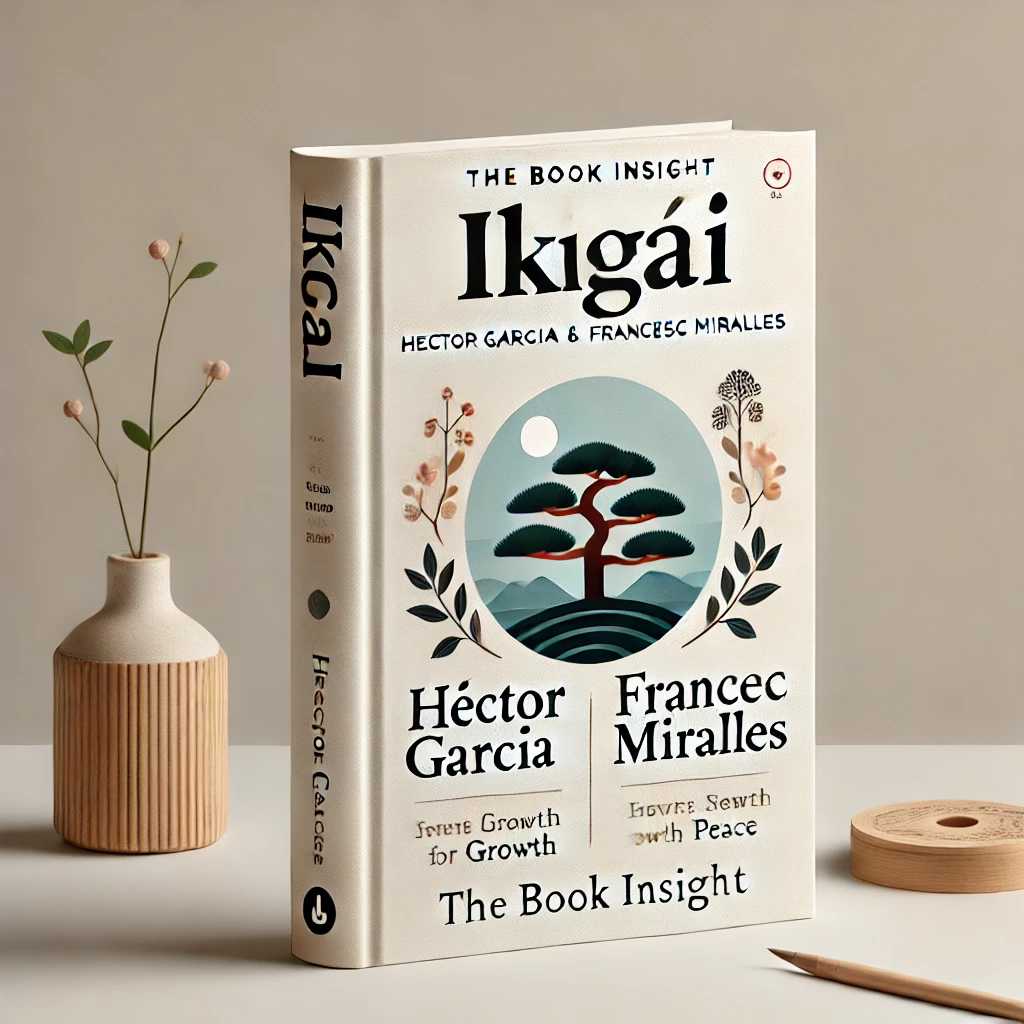Table of Contents
ToggleTop 5 Books for Mental Wellness in 2025 to Strengthen Your Mind and Soul
Why Mental Wellness Is a Crucial Topic in 2025?
Life is a constant rotation of happiness and hardship. Yet, the human mind tends to dwell on the negative, forgetting that every dark night is eventually followed by dawn. Events like the COVID-19 pandemic, rising natural disasters, and increasing societal unrest have left lasting scars on our mental well-being. Even in 2025, many people continue to battle post-pandemic stress, emotional fatigue, and digital burnout.
While the world seems to have moved on physically, many still feel emotionally trapped—stuck in cycles of fear, self-doubt, or numbness. The need for mental wellness is no longer optional; it’s essential for a balanced, peaceful life. Top 5 Books for Mental Wellness in 2025
The Rise of Self-Help and Mental Health Books 2025
In response to this growing need, more individuals—especially young adults—are turning to self-help books for guidance and healing. With the rise of solopreneurship, remote work, and the pressures of modern life, maintaining emotional clarity has become crucial.
A 2023 Pew Research Center study revealed that over 35% of adults increased their reading habits post-2020, particularly in mental health and personal development genres. Books have evolved from being sources of entertainment to becoming lifelines—offering comfort, structure, and transformation.
How to Choose the Right Mental Wellness Book
Choosing the right book for mental wellness isn’t about grabbing the latest bestseller—it’s about finding a book that meets you exactly where you are in your emotional journey. With countless titles on the shelf, how do you pick the right one?
Here are some thoughtful tips:
- Understand Your Current Mental State
Reflect on your present challenges. Are you dealing with stress, loneliness, low energy, or a lack of direction? Pick a book that addresses that specific area of need. - Consider the Author’s Perspective
Is the author a psychologist, coach, or someone with lived experience? Choose one whose voice resonates with your values and feels authentic. - Decide Between Practical or Inspirational Content
Some books offer step-by-step strategies, while others inspire through stories and reflections. Go with what motivates and moves you. - Check the Reading Style
If you’re mentally exhausted, choose a book that’s light, conversational, or includes short chapters. Don’t force depth when you need comfort. - Trust Recommendations from Real People
Friends, blogs, and trusted creators can lead you to impactful reads that aren’t always trending but truly life-changing. - Let the First Page Speak to You
Skim the opening pages. If a sentence grabs your heart or brings you calm—it’s probably the right one for now.
Remember: The right book doesn’t just inform—it transforms. It meets your broken pieces with compassion and gently helps you reassemble.
Top 5 Mental Wellness Books in 2025
1. The Anxious Generation by Jonathan Haidt
Brief Summary: Jonathan Haidt explores the alarming rise in anxiety and depression among young people. The book highlights how modern parenting and early smartphone exposure are shaping childhood. It’s divided into four parts:
- The Tidal Wave – A statistical overview of Gen Z’s mental health decline.
- The Decline of the Play-Based Childhood – How physical activity and emotional connection are being lost.
- The Rise of the Phone-Based Childhood – The impact of smartphones on spiritual and emotional growth.
- Collective Actions for Better Childhood – Action plans to restore balance and prevent long-term damage.
Why It’s Worth Reading: Haidt offers valuable insights on how digital life is shaping mental health, especially in youth. He presents actionable solutions for parents, schools, and communities to foster emotional resilience and promote healthier childhoods.
Ideal For: Parents, teachers, Gen Z youth, and anyone concerned about the emotional well-being of children in the digital age.
2. The Let Them Theory by Mel Robbins
Brief Summary: This book teaches a powerful mindset: let people do what they want. Stop trying to control others and instead focus on your own joy, purpose, and goals. Robbins provides a step-by-step guide to detaching from others’ opinions, drama, and judgments.
The Core Message: In today’s overstimulated world, people feel overwhelmed trying to manage everything. Robbins encourages readers to detach from what they can’t control and refocus energy on personal happiness and mental peace. The book also dives into emotional awareness, relationship dynamics, and setting healthy boundaries.
Why It’s Worth Reading: It provides a refreshing, liberating approach to mental wellness by promoting emotional independence. Especially relevant in 2025, when burnout and information overload are common.
Ideal For: Corporate professionals, solopreneurs, and individuals struggling with burnout, overthinking, or emotional detachment.
3. Beyond Anxiety by Martha Beck
Brief Summary: Martha Beck explains how our brains can fall into an “anxiety spiral”—a self-reinforcing cycle that intensifies worry. Using neuroscience, coaching techniques, and practical exercises like a three-minute meditation, Beck teaches readers to break the cycle and move toward a life filled with meaning and joy.
The Core Message: Anxiety and depression is not just rising externally; it’s being internalized in harmful ways. Beck explains how to identify triggers, reframe thoughts, and use creativity to manage anxiety. Her approach is rooted in science and personal transformation.
Why It’s Worth Reading: It blends neuroscience and self-reflection, offering practical strategies to turn anxiety into a tool for personal growth. The exercises are simple and actionable for everyday life.
Ideal For: Anyone struggling with anxiety and depression, or stress; especially useful for those seeking a mix of science and soulful reflection.
4. No Filters by Christie Watson & Rowan Egberongbe
Brief Summary: A heartfelt dialogue between a mother (Christie) and her teenage daughter (Rowan), this book tackles the silence and emotional isolation teens often experience. It explores how pain is often internalized and how hard it can be to ask for help.
The Core Message: The book answers:
- How do we communicate when things feel unbearable?
- How can generations bridge emotional gaps?
- How can families have honest, healing conversations?
Why It’s Worth Reading: Offers a raw, real-life lens on mental health in the family context. It underscores the value of communication, especially in the age of social media where masks are easy to wear but hard to remove.
Ideal For: Teenagers, parents, grandparents, and educators who want to build stronger, more emotionally open family bonds.
5. Hope for Cynics by Jamil Zaki
Brief Summary: Zaki confronts the rising tide of cynicism in modern society. With optimism often dismissed as naive, this book champions a rational, science-backed hope that recognizes difficulties while still believing in progress.
The Core Message: Zaki shows that hope is not about ignoring problems, but about intentionally choosing compassion, empathy, and optimism. Backed by psychology research, he argues that kindness and belief in goodness can be practiced and cultivated.
Why It’s Worth Reading: In a world where burnout, distrust, and negativity are rampant, this book offers a refreshing, science-driven argument for optimism as a powerful mental wellness tool.
Ideal For: Cynics, skeptics, those feeling emotionally drained, and readers seeking a practical, uplifting perspective on life.
A Personal Reflection – The Power of Tiny Steps
A close friend of mine once had the courage to leave a stable, high-paying job to chase his dream of launching a startup. He gave it everything—his energy, time, and savings. But the business didn’t take off. Sales struggled, and lack of experience slowly drained his confidence. Eventually, he returned to corporate life, carrying a heavy sense of failure.
During this journey, he fell deeply in love with one of his most trusted team members. Their relationship was built on resilience and shared ambition. But their love story ended—not because they lacked commitment, but due to rigid parental mindsets. The breakup shattered him. He didn’t open up—not to friends, not even to family. He silently carried his grief, hidden behind smiles.
When I finally met him months later, I saw through the mask. That day, I gently suggested he try something new: make books his friend. I introduced him to Atomic Habits and explained the power of small, daily improvements—the 1% rule.
He agreed to start with just one page a day.
That tiny act sparked change. Over time, he regained clarity, strength, and purpose. He went on to read Ikigai, a book that helped him reconnect with his “why.” Slowly, he began healing—not just from heartbreak, but from the weight of unspoken pain.
Today, his challenges haven’t disappeared—but his mindset has transformed. He now lives with resilience, calm, and purpose—all thanks to the tiny steps that books helped him take.
Final Thought:
In a world that often values productivity over peace, mental wellness is no longer a luxury—it’s a lifeline. The right book at the right time can heal, guide, and empower you to reclaim your emotional balance. Whether you’re just starting your journey or rebuilding yourself from the ground up, these five books offer timeless support.
📚 “Mental strength is not the ability to stay out of the darkness—it’s the ability to sit in the dark and still find the light.”
If overthinking is one of the mental barriers you struggle with, we highly recommend reading our in-depth article: Overthinking: Understanding the Mental Loop and How to Break Free — it offers practical steps to calm your mind and regain mental control.
 You Might Also Like
You Might Also Like
Explore more insightful reads that can help you better understand your mind and improve your daily life:
 Dopamine Detox
Dopamine Detox
Discover how stepping away from constant stimulation can reset your brain’s reward system and boost focus, clarity, and motivation.
 Top Books for Mental Wellness 2025
Top Books for Mental Wellness 2025
A carefully curated list of transformative books that promote emotional resilience, mindfulness, and mental clarity—perfect for your personal growth journey.
 Overthinking: Understanding the Mental Loop
Overthinking: Understanding the Mental Loop
Break free from the endless cycle of overthinking. Learn what causes it, how it affects your well-being, and practical ways to manage it effectively.




